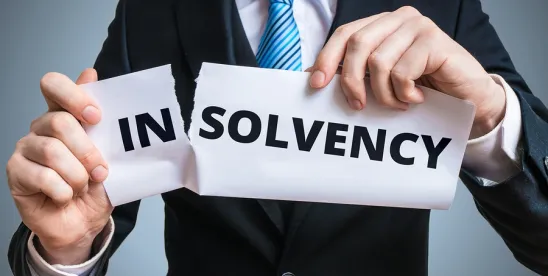On 11th November 2022, Mr Justice Zacaroli handed down judgment on an application for directions made by the officeholders of ten different energy supply companies (“ESC” or “ESCs”) seeking clarification on issues arising in the insolvencies of the ESCs which had not previously been the subject of judicial consideration.
In terms of quantum, the issues were valued at in excess of a hundred million pounds across the ten insolvencies and potentially many more millions of pounds on other ESC insolvencies not before the court.
The outcome of the application was of particular interest not just to the officeholders of the relevant insolvencies but particularly to Ofgem; the suppliers of last resort (“SoLR” or SoLRs”) and other significant creditors in the insolvencies. All were represented at the hearing which took place over 4 days in early October 2022.
The Issues Before the Court
The issues upon which the court was asked to rule fell into two categories:
(1) Firstly, the construction of statutory provisions relating to obligations imposed on the ESCs (and ESCs generally) to provide certificates confirming that they had acquired energy from renewable sources or had made payment to Ofgem in lieu of doing so.
The main question being asked in relation to these renewable obligation certificates (“ROCs”) was whether the liabilities arising out of these ROCs, were provable in the insolvencies of the failed ESCs particularly in circumstances where any failure to comply with their obligations, was mutualised by Ofgem, across the industry.
(2) Secondly, a potential claim in unjust enrichment by a SoLR against a failed ESC arising out of the fact that the SoLR had honoured the credit balances of customers following their appointment as SoLR.
Findings in Relation to the First Issue
In determining the first issue, the Court was required to consider many factors which affected the status of ROCs including (i) the construction of the statutory scheme under which the provision of ROCs (or payment in lieu) was required, including relevant dates for the supply of ROCs or payment in lieu; (ii) the effect of mutualisation on the obligations relating to ROCs and (iii) the status under relevant insolvency legislation, of any debt arising out of a failure to provide ROCs or payment in lieu. Such issues will arise in every failed ESC insolvency but had never previously been determined by the court.
In determining these factors, the court took into account the risk of double counting and double recovery because of mutualisation; the absence of provisions addressing payments made after 31st October (being the last date in any given year by which Ofgem is required to deal with the ROCs’ buy out fund); whether (and when) the obligation to make a payment in lieu of a ROC obligation was a prospective, contingent and/or actual debt under the Insolvency Rules 2016 and the position at common law.
In short, Mr Justice Zacaroli supported the position advanced by Ofgem and concluded that:
(a) an ESC which failed to discharge its ROC obligation (by the provision of ROCs) in full by 1st September was under a liability to make a payment in lieu to the buy out fund;
(b) prior to 1st September, the liability in (a) above was a contingent liability, thereafter, it became an actual liability; and
(c) the actual liability continued beyond 31st October notwithstanding the existence of the mutualisation scheme from that date.
Accordingly, the conclusion reached was that the liabilities arising under the ROCs were provable in the insolvencies of the relevant failed ESC.
Findings in Relation to the Second Issue
The second issue for the court centred on whether the failed ESC was unjustly enriched as a consequence of the SoLR honouring the failed ESC’s customers’ credit balances.
In understanding the arguments and the Court’s findings it is helpful to understand how credit balances accrue; why credit balances are honoured and how these are dealt with following a failure of an ESC.
Rationale for Paying Credit Balances
Often, the customers of failed ESCs have paid for their energy supply by regular (monthly) direct debit. This meant that depending on when the ESC went into administration, the customer might have built up a credit balance in their energy account (eg in the summer) which they would expect to be utilised during the winter months when they had a greater need for energy.
It is important to Ofgem (as custodian of the customers’ best interests) that before they appoint a SoLR to take over supplies from a failed ESC, it gets comfort from the SoLR that they will honour customers’ credit balances so that customers are not unfairly harmed by the failure of their original ESC. Ofgem give priority to SoLRs who agreed to do so, particularly if they also agreed not to make any claim to Ofgem for a Last Resort Supply Payment (“LRSP“).
All SoLRs who were appointed in respect of the 10 failed ESCs in this case had agreed to honour customers’ credit balances in order to help secure their appointment as SoLR. They did so because in part at least, they would be acquiring a failed ESC’s customers without paying any purchase consideration in the traditional sense and without having to pay a price comparison website any commission for securing the transfer of customers.
In 2018/19, it was said that the commission payable would have been between £60 to £120 per customer per fuel so when tens of thousands of customers were being “acquired” by a SoLR, the value of this benefit was considerable. Commercially this made sense, because the value to the SoLR of the acquisition of these customers exceeded the quantum of the credit balances to be honoured.
Moreover, provided it had Ofgem’s authority to do so, a SoLR could apply to Ofgem, for a LRSP to reimburse certain of the costs incurred by the SoLR, including credit balances which it had honoured. However, Ofgem will only agree to make a LRSP to a SoLR provided the SoLR has first sought to recover the cost of honouring those credit balances from the insolvent estate of the failed ESC. It is only insofar as there is a shortfall in the amount recovered from the failed ESC, that a LRSP is payable.
Arguments Made
In dissecting some of the constituent parts of a claim for unjust enrichment, the SoLRs argued that
(i) their honouring of credit balances enriched the failed ESC by discharging its debt to its customers either because the failed ESC “requested, authorised or ratified” the payment or because it was paid “under compulsion”;
(ii) that enrichment was “at the expense” of the SoLR because value was subtracted from the SoLR in order to honour the credit balances; and
(iii) the enrichment was unjust for either or both of the same reasons that the failed ESC was enriched, namely request, authority or ratification; or compulsion.
Some of the Applicants (and the representative creditor who appeared at the hearing) argued that there was no claim in unjust enrichment because (i) the payment was neither requested, authorised or ratified by the failed ESC nor made by compulsion by reference to the standard licence conditions in force at the time; (ii) any enrichment was not in any event at the expense of the SoLR because such payment was “incidental and collateral” to the wider “bargain” entered into by the SoLR and/or because the SoLR could recoup some or all of the costs via a LRSP; (iii) alternatively, where a SoLR had been reimbursed for honouring credit balances via a LRSP, the failed ESC had a defence of “passing on” and (iv) any enrichment was not unjust for largely the same reasons that the failed ESC’s debt was not discharged.
Court Findings
After hearing Counsel’s submissions and a thorough review of all of the relevant authorities to which he was taken, Mr Justice Zacaroli held (essentially in favour of the SoLRs) that (i) the honouring of customers’ credit balances was implicitly requested or ratified by the failed ESC such that the SoLR could reasonably expect reimbursement; (ii) further or alternatively, the SoLRs were under sufficient legal compulsion to honour such credit balances; (iii) the enrichment of the failed ESC is the essential consequence of the thing done by the SoLR (i.e. the honouring of credit balances) not merely incidental or collateral to the SoLR’s expenditure or the wider bargain; (iv) the question of reimbursement via a LRSP is irrelevant to the “at the expense of “ argument and (v) there was no defence of passing on in English Law.
Conclusion
It is certainly the case that the Court has reached what appears to be the most just and sensible conclusion having navigated many technical areas of law and interpreted numerous cases in which the principles argued in this case had been debated before but not in the unique failed ESC arena. In doing so, it is hoped that there is now some clarity around these issues which will make life more certain for all stakeholders involved in the (current and future) insolvencies of failed ESCs going forward.
It should be remembered that the officeholders who issued or joined this application for directions did so on a neutral (rather than an adversarial) basis in order to get clarity from the court on how the funds which they hold in the insolvent estates should be distributed without risk of claims from those adversely affected by the outcome of the application. The officeholders often put forward points in favour of and against certain arguments in the interest of balance and fairness and to help the court reach a solution which could then be applied across an industry where there have been many insolvencies over the last 18 months.
It was Ofgem, the SoLRs and other creditors of the failed ESCs (particularly substantial creditors across many insolvencies of failed ESCs) that had most to gain (or lose) from the court’s findings. It will be interesting to see if those creditors (who are the ones most adversely affected by the Court’s findings) take the matter any further.




 />i
/>i

